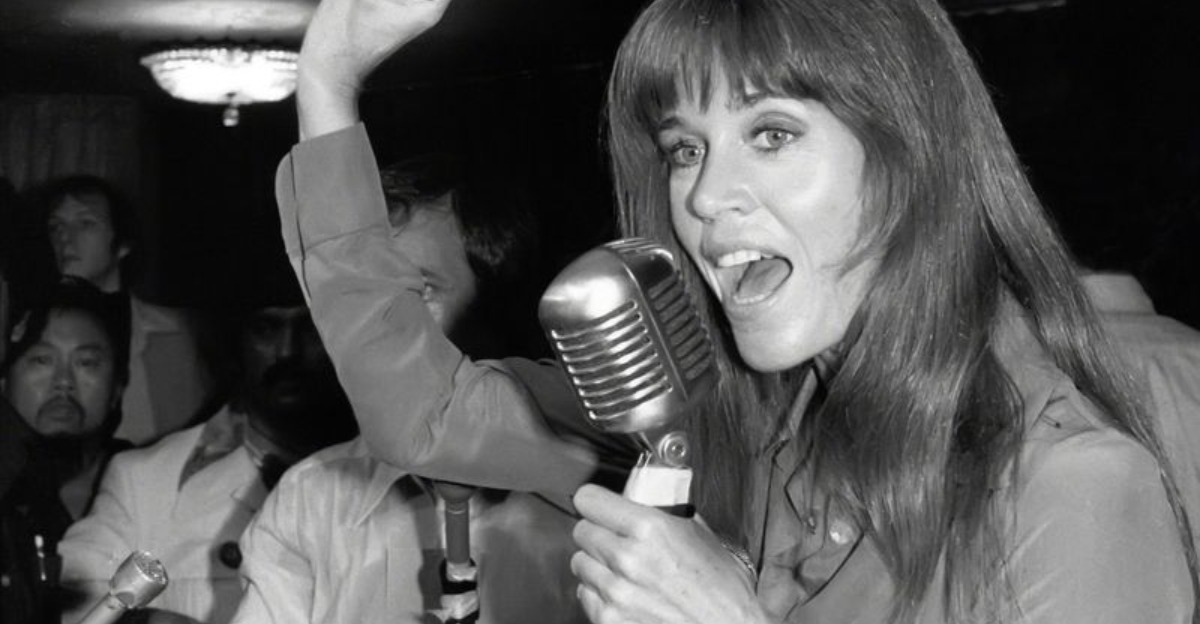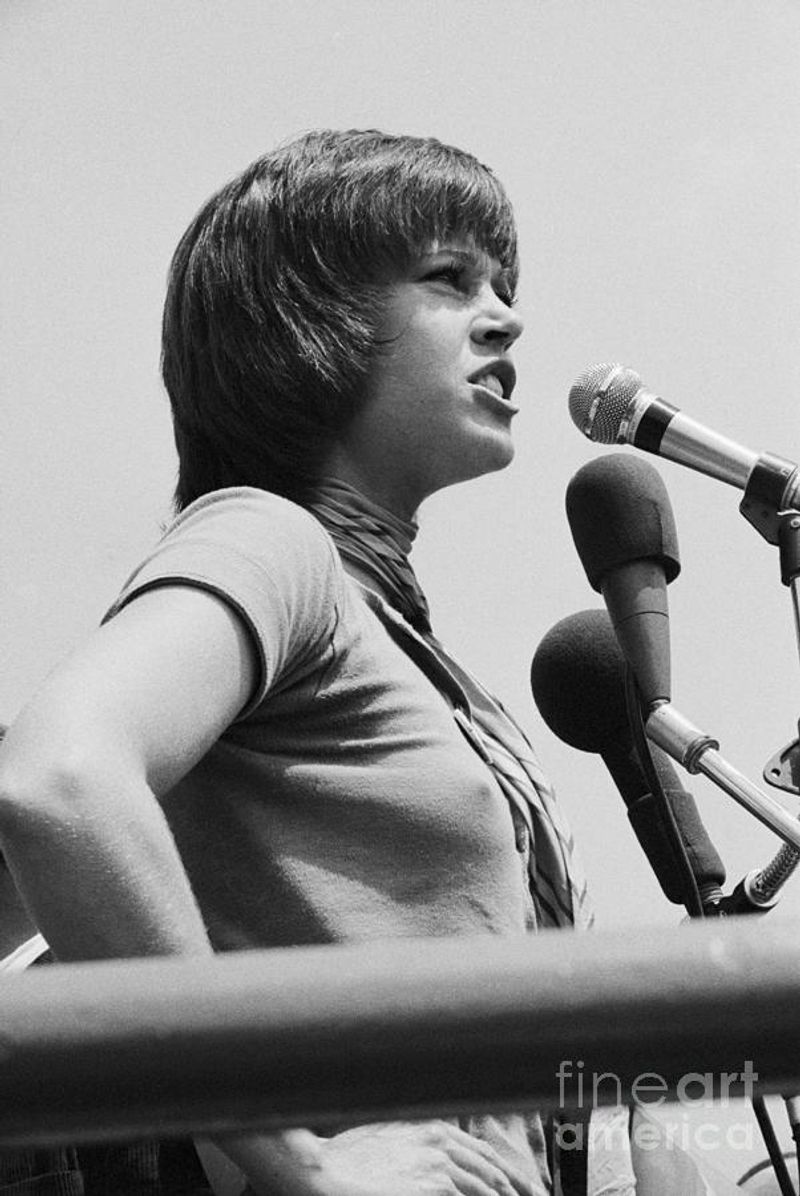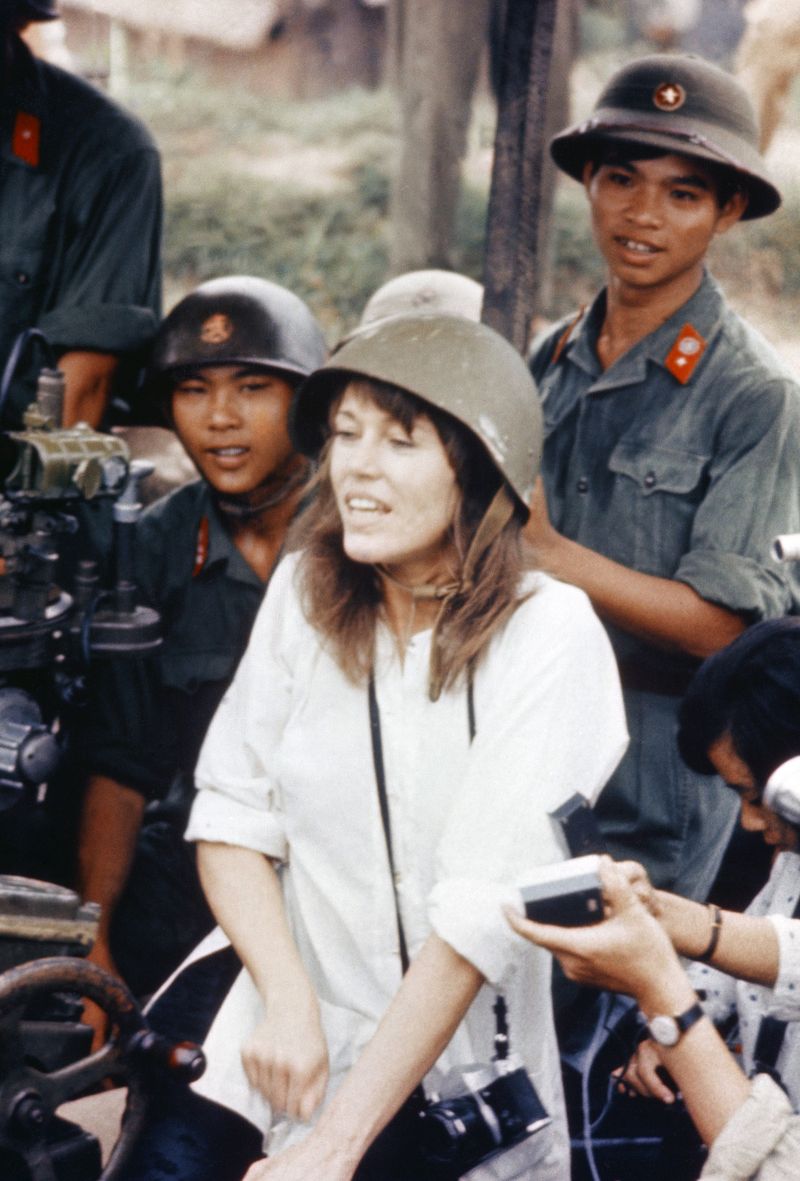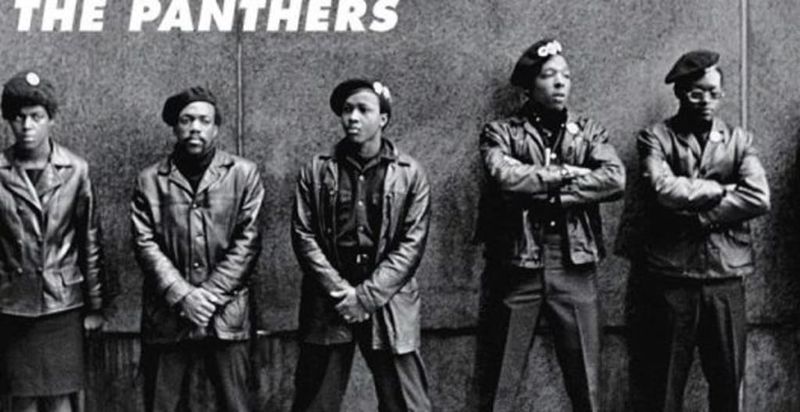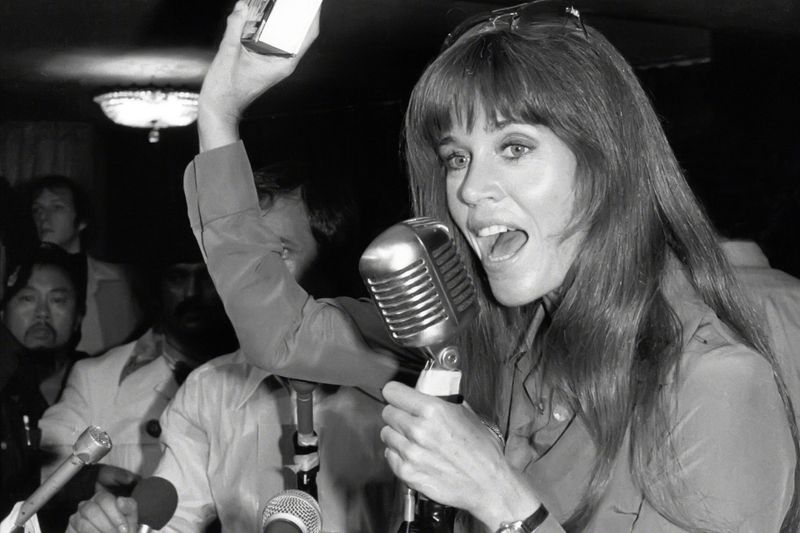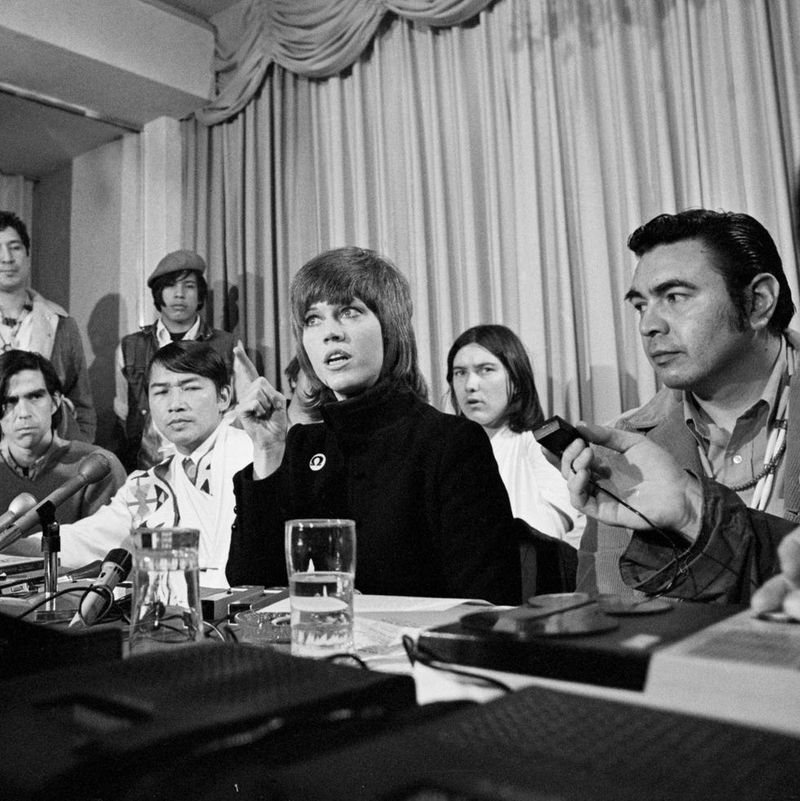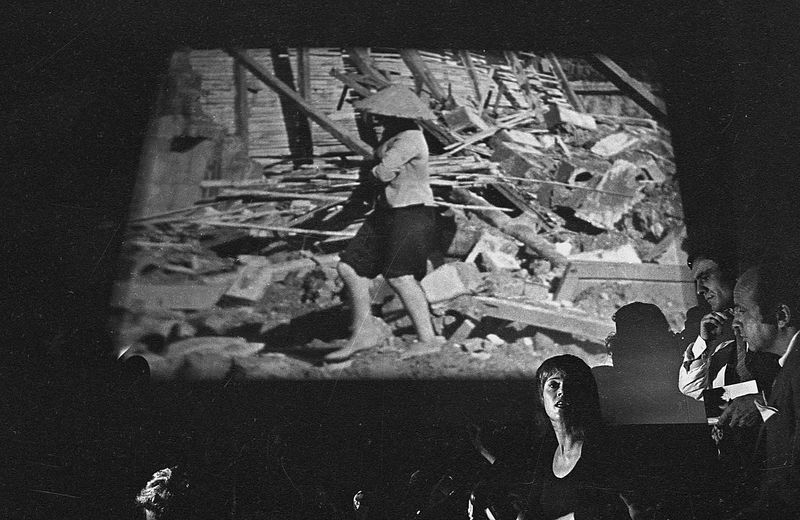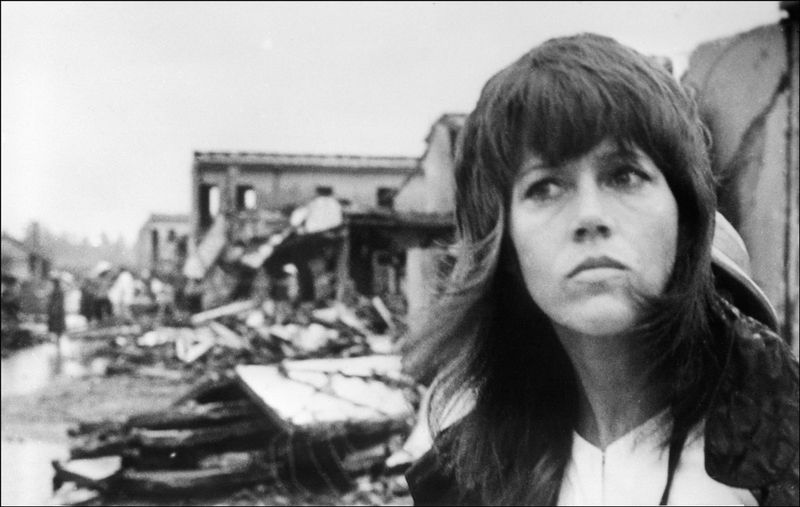Jane Fonda, a celebrated actress and activist, became a significant figure of contention for the FBI during the Vietnam era. Her staunch anti-war stance, high-profile celebrity status, and associations with radical groups made her an intriguing yet controversial character in American history. This article delves into the seven key reasons behind the FBI’s extensive surveillance on Fonda, exploring her activism and the subsequent impact on her life and career.
1. Her Anti-War Activism During Vietnam
Jane Fonda’s outspoken stance against the Vietnam War resonated across America. In her early thirties, she co-founded the Anti-War GI Movement, encouraging soldiers to reject deployment. Her fiery speeches and passionate protests drew attention, sparking both admiration and ire.
The FBI perceived this as a direct threat to military morale and security, leading to extensive surveillance. Her actions, while inspiring to many, positioned her as an adversary to the establishment. Her patriotism was questioned, and her celebrity status only amplified the tension, making her a significant target in the eyes of federal authorities.
2. The Infamous “Hanoi Jane” Incident
In a controversial move, Jane Fonda visited North Vietnam in 1972, where she was photographed sitting on an anti-aircraft gun. Dubbed “Hanoi Jane,” this image became a symbol of betrayal for many Americans.
The FBI interpreted her actions as providing aid to the enemy, considering charges of treason. The photograph shook the nation, raising questions about loyalty and protest. While her intention was to promote peace, the backlash was significant, intensifying scrutiny from federal agencies.
This incident remains one of the most infamous moments of her activism, casting a long shadow over her public image.
3. Her Ties to Radical Leftist Groups
Jane Fonda’s association with radical groups like the Black Panthers and the Young Lords alarmed the FBI. Her involvement with these organizations illustrated her commitment to social justice but also raised red flags.
These groups were under intense scrutiny in the 1970s, and her meetings and collaborations were meticulously documented. Her alliances reflected a broader movement for equality and change, yet they fueled FBI suspicions.
Fonda’s activism extended beyond anti-war efforts, integrating with a spectrum of revolutionary causes, making her a prominent figure in the eyes of law enforcement.
4. She Supported Draft Resistance
Fonda’s financial and vocal support for draft resistance during the Vietnam War marked another point of contention. Her efforts in funding anti-draft organizations and encouraging non-compliance were seen as deeply subversive by the FBI.
Agents closely monitored her activities, from speeches to donations, fearing her influence would incite rebellion among the youth. Her celebrity status amplified these fears, as she was able to reach a wide audience.
Her advocacy for draft resistance stood as a testament to her commitment to peace, yet it placed her at the forefront of FBI investigations.
5. The FBI Feared Her Celebrity Influence
Jane Fonda’s unparalleled celebrity influence made her a formidable force in the anti-war movement. Her ability to sway public opinion worried the FBI, prompting years of surveillance and wiretaps.
Her dynamic presence on talk shows and public platforms allowed her to articulate her anti-establishment views effectively. The FBI amassed a 20,000-page dossier, a testament to their concern.
Despite intense scrutiny, her commitment to activism never wavered. Her star power, combined with her advocacy, posed a unique challenge to the authorities, marking her as a central figure in the era’s sociopolitical landscape.
6. She Was Part of a Larger Crackdown on Dissent
The Nixon administration’s disdain for Jane Fonda was well-known, with discussions even entertaining extreme measures against her. As part of a larger crackdown on dissent, her case exemplified the era’s political tension.
The FBI’s pursuit was relentless, motivated by a desire to silence anti-war voices. Fonda stood defiantly against governmental authority, embodying the spirit of protest that defined the period.
Her situation was not unique but part of a systematic effort to curb activism. This broader context highlighted the challenges faced by those daring to speak against the establishment.
7. Even After Vietnam, She Stayed on Their Radar
After Vietnam, Jane Fonda continued her activism, shifting focus to Native American rights, feminism, and environmental causes. Even as the war ended, the FBI maintained its watchful eye.
Her efforts to champion these causes illustrated her unwavering commitment to social justice. Her influence extended into the 1980s, as she passionately addressed new issues.
The surveillance underscored a persistent governmental suspicion. Her enduring presence in activism circles made her a perpetual figure of interest, symbolizing a broader struggle for change and equality.
